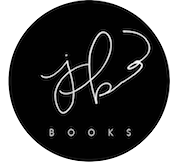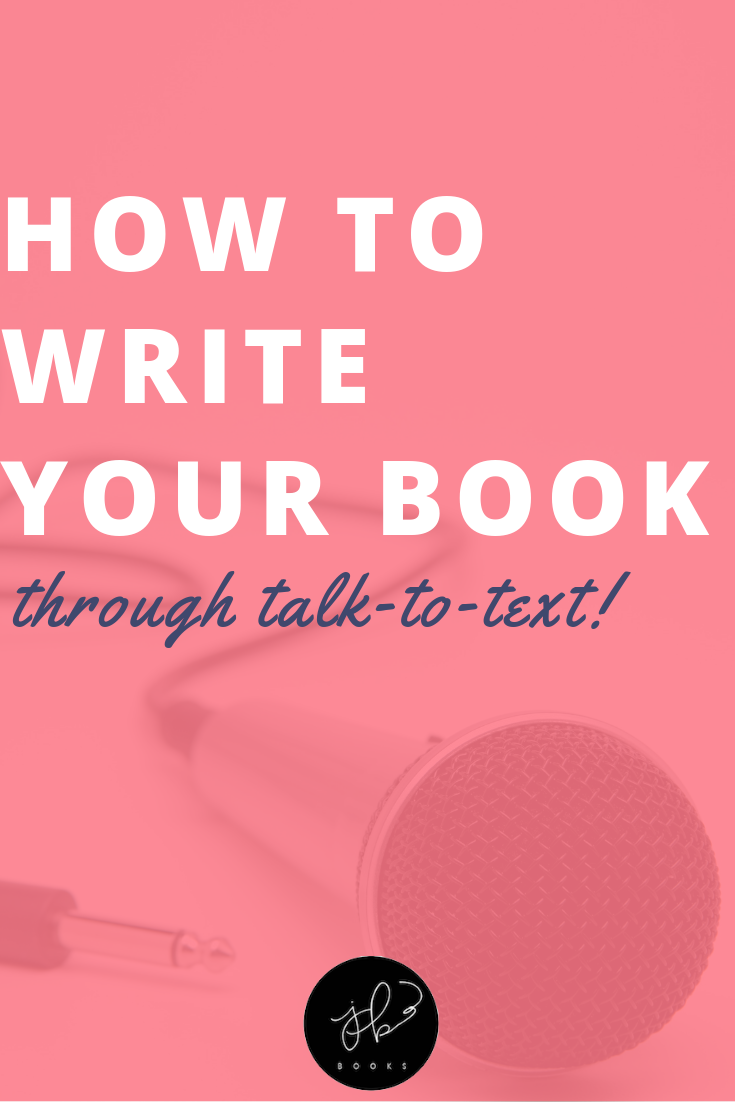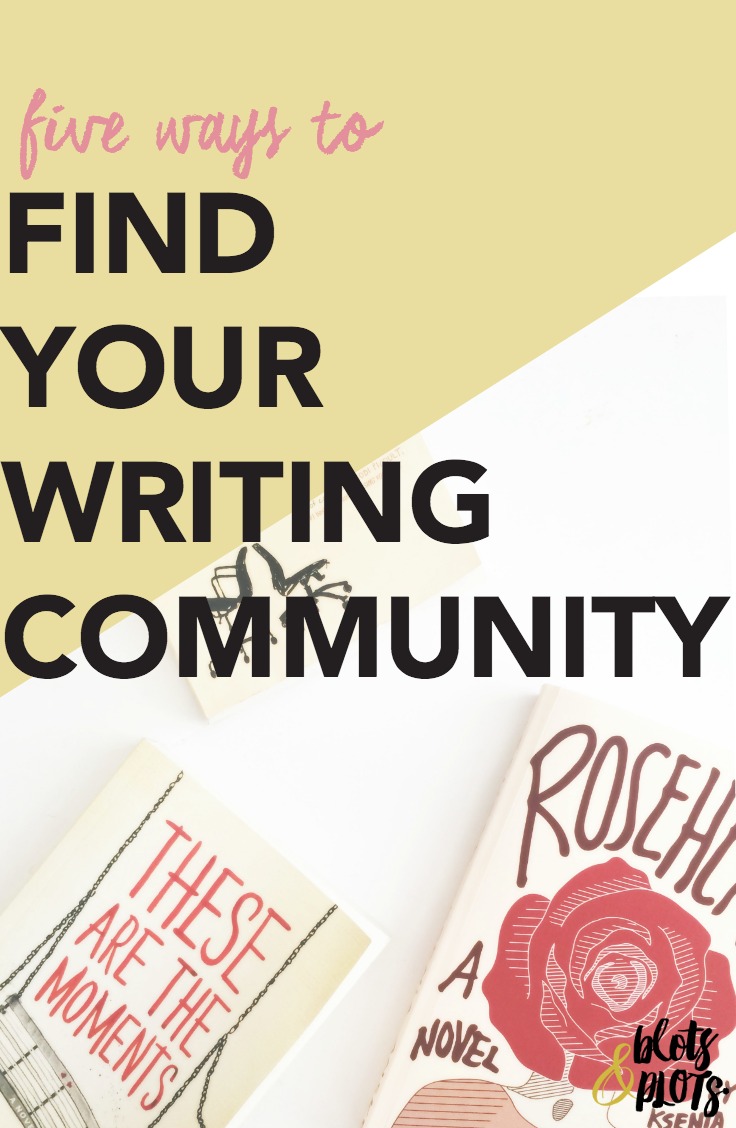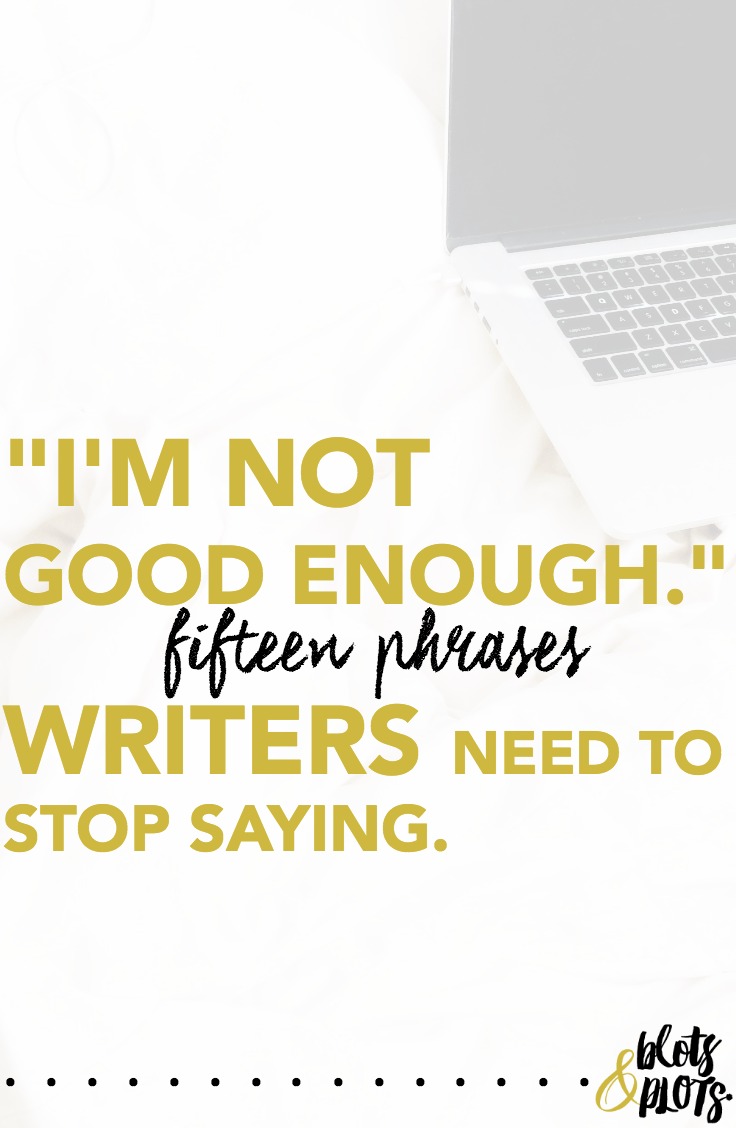The #1 Secret to Writing Faster and Saving Your Time
Let's be honest. We're wasting our time. How many times do you catch yourself mindlessly scrolling through Instagram? How many times do you lock yourself away to "write," only to spend hours checking your email or reading Buzzfeed articles or you name it.
Guess what, friends? There's hope for all of us. With one simple strategy, you can up your writing game and save time while you're at it!
Curious yet? Let's get the party started.
First, a Story
When I began writing my novel, These Are the Moments, I found myself getting distracted really easily. I'd check my phone or click over to Pinterest, and before I knew it, there went thirty minutes of precious writing time. I knew that if I planned to complete my novel in the next century, I needed a game plan.
First, I eliminated my distractions by writing on paper. Still, I found myself reaching for the phone. That's when I started to pay attention. Whenever I felt stuck or bored in a scene, I would avoid writing by hopping onto my phone or social media. Instead of writing my way around the problem, I avoided it completely.
Truth Talk: Take a moment to really think about your writing habits. Do you evade or attack? Leave your answers in the comments below.
Second, a Solution
Through Twitter, I discovered a writing strategy that saved my career and my time, and today, I'm here to share it with you. It's called a word sprint. Also known as a word war or a write sprint. The idea behind this concept is that you write as much as you can without stopping for a set amount of time.
What's so special about this technique? This technique teaches you how to crush your inner editor. Because you are aiming for a high word count, you are able to write freely without pause and keeps you from hitting the delete key. Also, it's a race against the clock, so you're tricking yourself into writing faster.
Practice Time: Let's start with a quick, five minute sprint. Set your timer, have a scene in mind, and write, write, write!
Third, a community
By now, you probably realize that you're on the Jenny Bravo Books blog. If you're new here, hello and welcome! If you're a regular, I'm thrilled and I think you're pretty. This blog is for you, my friends. If you ever have a blog post suggestion or a question, I'm just a hop, skip and an email away.
Here's why you should join our community. We like confetti, first of all, because we are party people. Also, we hang out on Twitter. But mainly? We support each other.
Discussion Time: What's your biggest time waster? What's your secret to writing faster?
Start Your Writing Career in Less Than Fifteen Minutes
picjumbo
Happy Monday, writer ladies and gents. Are you looking to take your writing hobby to the next level? Are you ready to start your writing career? Today, I'm going to help you boost your writing game and help you embrace your new career, in less than fifteen minutes!
First of all, we should define writing career. Maybe you imagine James Patterson or Stephen King, the kind of writer who can afford to stay home and make a permanent income from their books. Maybe you imagine the write-by-night artist, the one who balances a day job with novel-writing.
Here's a definition I'd like to use: a writing career begins the moment you decide to take yourself seriously as a professional writer. A writing career is not defined by the quantity of books you've written, the amount of money you make or the number of readers you've gained.
Excited, yet? Let's start your writing career in less than fifteen minutes...
Define Your Goals + Embrace Your Identity
estimated time: 5 minutes
To start off, I want you to imagine yourself as a writer. You are not an aspiring writer or a future novelist. You are a writer. There's something to be said about owning your title, and with that ownership comes a sense of pride and confidence. You can read more about this over here.
Once you've got that down, we need to define your goals. At this step, I want you to focus on your broad, long term goals. Ask yourself the following three questions and write down your responses:
What is my definition of literary success?
What am I willing to sacrifice to make more time for writing?
What am I most excited about my new writing career?
Now that you've defined your own vision for your writing career, we can begin the writing part of this process.
Brainstorm Your Next Project
estimated time: 7 minutes
If you're ready to start your writing career, then you are ready to start your first project. Maybe you're the kind of writer who has started and stopped novel after novel. Maybe you're the kind of writer who is scared to make the big leap into novel-writing. Maybe you're just plain stuck. Are you looking to start a novel? Be sure to check out this post next.
More than likely, you're stuck in one of two camps. Camp one: You have one good idea that you can't make work. Camp two: You have too many ideas that you can't choose. First, let's take a few minutes to pick your path.
CAMP ONE
What do you like about your project idea?
What's keeping you from making it work?
Would you rather revive or abandon your project?
CAMP TWO
List your ideas down in bulleted form.
Circle the top three ideas that excite you the most.
Of the top three, which idea do you feel is the best suited for your style + time?
Remember, this project is not written in stone. Writing is a fluid art, and you never know where it may lead you.
Get Writing, My Friend
estimated time: 2 1/2 minutes (we said less than 15, remember?)
For this last step, I'm going to give you a couple of options:
Start writing, right now. If you're feeling up to it, spend the next 2 1/2 minutes writing as fast as you can. I bet you can't stop yourself once you've started.
Build a writing schedule. Maybe you need organization to get your best work done. If that's the case, read this post on five ways to schedule your writing time.
And there you have it! Three steps to start your writing career in less than fifteen minutes. For more exclusive writing tips, be sure to join the mailing list. Sign up in the sidebar.
Discussion Time: Where are you in your writing career? How can you use these tools to reach your goals?
Why You Should Write a Prequel for Your Novel
Happy Monday, friends! Today we're going to talk about why you should write a prequel for your novel and how to use it as a marketing tool. If you've been keeping up, you know I just published a novel called These Are the Moments and have been serializing a prequel called Those Were the Days. How has this helped promote my book? How can you benefit from this?
First things first, what is a prequel? It's a work of fiction that comes before a later work, plain and simple. The term "prequel" is fairly broad, with no specific length. You can publish one or multiple prequels for your book. James Dashner published a full-length prequel for his hit Maze Runner series, while J.K. Rowling wrote a prequel to the Harry Potter series, a mere 800 words long!
If you want to create buzz for your forthcoming novel, consider releasing a prequel. Here are a few tips:
Prequels Create Reader Interest
If you want readers to connect to your story, bring them in from the beginning. When I decided to serialize Those Were the Days online, I hoped it would allow readers to experience my writing style and characters before the book was even available. And guess what? It worked!
Let's break down some key components to hooking your readers with a prequel:
Backstory. Backstory gives readers a way of connecting with your story before they even get to the actual story. It answers the "why" questions that readers may have, and let's them engage with your characters from the ground floor.
Character Development. In Those Were the Days, we meet Wendy Lake and her sister Claudia. It sets the stage for their strained relationship, and foreshadows events that occur in the novel. Why is this important? Readers want to know your characters and learn how they get from Point A to Point B.
A Clean Tie-In to Your Novel. If you write a prequel, make sure it directs readers toward your novel. You want to leave readers wanting more from your characters and your story. How do you do this? Write a cliffhanger ending.
Prequels Create Marketing Opportunities
As a first time novelist, I experimented in creating awareness for my book and my brand. When in doubt, give people free stuff. I decided to write a prequel on my blog and on Wattpad, hoping to build awareness for my soon-to-be-released novel.
Here are some plans that to implement:
Release Your Prequel for Free. I know. The copyright thing is scary. But if you feel comfortable with this, releasing your work for free allows readers to get a sense of who you are. Plus, they'll know that you care enough to give them free stuff!
Edit Your Content and Release It For Sale. While you can access my prequel online, I plan to edit and add to it. From there, I'll post it on Kindle for a (minimal) price and promote the new and improved version.
Bundle Prequels with Novels for a Special Price. Bundling is a new big thing in the self-publishing world. Writers have been teaming up to release bundled ebooks as a way to cross-pollinate their audiences. Read more about bundling here.
Prequels Create Writing Opportunities
If you've written a novel, you know that many scenes don't make it into the final cut of the novel. If you're like me, you hate to waste words. Why not wrap these bonus scenes up into a prequel? This allows you to save time as well as create awareness.
Discussion Time: Would you write a prequel for your novel? What obstacles do you anticipate in the process?
First Novel Advice: Ten Writing Tips I Learned from Finishing a Novel
And it's Monday again, my friends. I hope you're fully caffeinated, because I've got a serious post for you today. Have you written a novel? If so, you know that there are some days when you look at all of those carefully chosen words and think: I really made this? Okay, that's every day.
But what about if you're not quite there yet? What if you're mid-novel, mid-chaos, mid-headache? Well, that was me just a few months ago. Staring at the screen. Thinking everything sounded terrible. Thinking I'd never actually finish. But miracle of miracles, I did. And you can too.
Here's some of my best first novel advice, in ten snapshots of learned lessons:
On Writing...
1. First Drafts are generally garbage. If you're one of those lucky few with a magical touch that turns words into gold, good for you. But since I wrote my whole first draft on paper, I could barely make out what I'd written. First drafts are where you want your mind to wander, explore and drift. It's okay to feel lost. You're probably going to change it all anyway.
2. You actually have to put words on paper. Sometimes, "writing" means staring into space, hopping on Twitter and talking about writing. This will get you nowhere. Setting a writing schedule allows you to maximize your time and gets you that much closer to completing your novel. And remember, free-writing is your best friend.
3. Characters don't always play nice. When I started writing These are the Moments, I thought I had a good grasp on who these characters were. But when I tried to force them into settings or plot lines, they usually veered off the path. Characters play by their own rules. It's your job to let them. Sentences like those are what make non-writers think we're crazy.
On Editing…
4. Editing is the devil's greatest secret. You finish your first draft, and you're feeling pretty good. You have a book, mostly. You think you're awesome. And then you read it. The characters are all over the place. Plotholes the size of craters litter your manuscript. And you're this close to giving up. But then you read this article, and the world gets a little brighter.
5. Hire an Editor Friend. Editors are writers' greatest weapons, apart from erasers and naps. When I found Tanya Gold, I knew she and I were the perfect match. Not only was she excited to work with me, but she was excited about the work itself. This was a huge advantage for me, and it made working with her fun and beneficial. Learn how to find a freelance editor here.
6. Beta Readers, Beta Readers, Beta Readers. Maybe you're stuck between drafts. Maybe your characters are all wrong, your dialogue seems dry or you need help picking an ending. Don't stress! Find people you trust to give your manuscript a quick read. Here's how to find beta readers for your novel.
On (Self) Publishing...
7. Take your time. If you're looking for first novel advice, this is key. When it comes to publishing your own novel, take the time to do the research. What's an ISBN? Which platform should you use? How do you format an ebook for Kindle? All of these are answers you need to know. Debating on traditional vs. indie publishing? Here's a quick guide for you.
8. Build Your Author Platform. If a book publishes to no audience, is it really a book? (Yes, it is.) However, it helps to have a solid base to start. Learn how to connect with readers through social media, so that when the time comes to publish, your name is already out there. I started blogging over a year ago, and have grown my blog by writing a blog series, accepting guest posts and maximizing my SEO.
9. Marketing, Marketing and Marketing. This goes hand in hand with building your author platform, but remembering that you and your book are two products of a single brand is imperative. Developing your products and finding new ways to reach readers is crucial. What unique quality sets you apart from the crowd? Learn more about marketing for writers in this article.
And a bonus...
10. Writing is a calling, a habit and a passion. When I first started writing, it was a hobby. A way to tap into my very active imagination. But now, it's developed into so much more. Writing is something that I have to practice at in order to improve. Writing is often tedious and stressful, but fulfilling and exciting. If you're lucky enough to call yourself a writer, recognize your talent and appreciate it.
Discussion Time: What have you learned from writing a novel? What do you hope to learn? What do you know now that you wish you'd known when you started writing?























